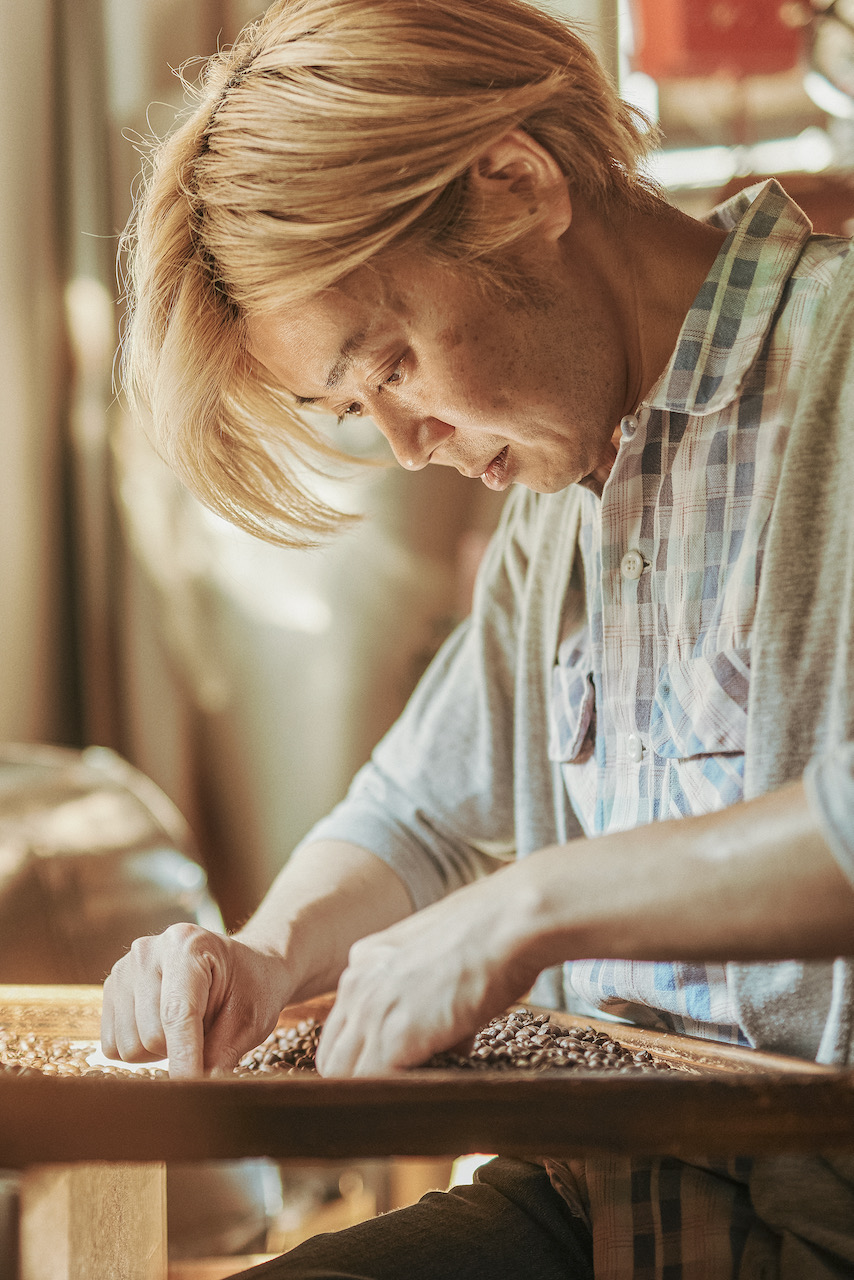
Something that is passed down from generation to generation. The goal of a specialized store selling coffee beans only and taking care of even a single coffee bean.
Roaster’s Coffee Baisenya or Baisenya, “roastery” in Japanese, was established in Fukuoka prefecture in 1988 as a specialized store that only sold coffee beans, a rarity at the time. More than thirty years later, they are still one of only a few standalone roasters that don’t have an attached cafe, or sell their coffee beans online. “We are a little bit clumsy.” We speak with Mr. Kenkichi Hirayama, the second-generation owner who continues to preserve the tradition at Baisenya.
※ Titles in the text are omitted.
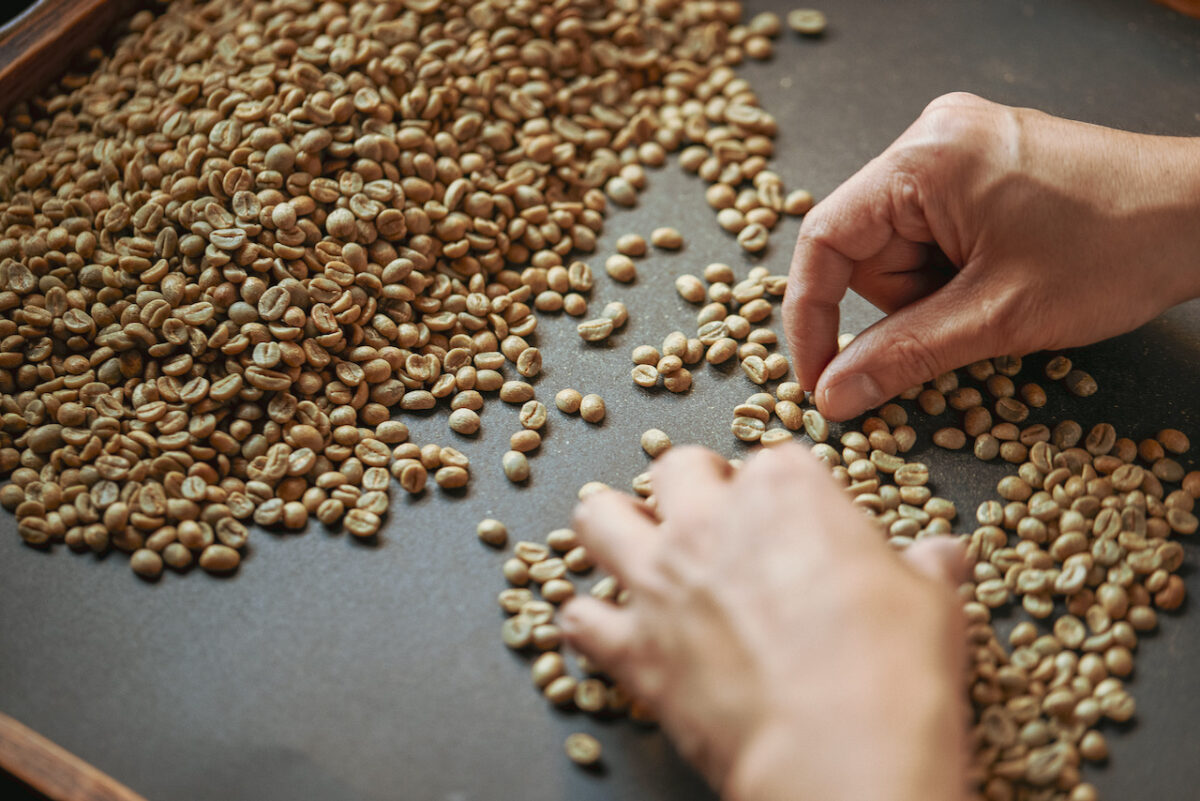
Not relying on the power of coffee beans as ingredients.
Mornings at Baisenya begin with Kenkichi and his father Satoru hand-sorting coffee beans. This is necessary to pick out unripe or insect-eaten beans called defective beans from producers who don’t use pesticides on their crops.
Kenkichi says, “Most of the defective coffee beans do not affect the taste of the coffee, but removing them changes the clarity and uniformity of the brew. But it is a different story for moldy coffee beans, which can critically alter the taste. If there is a single moldy bean in 100 grams, it would seriously affect the quality when it gets mixed into the grind with the rest. Thus, we would like to prevent that kind of ground coffee from reaching the hands of our customers as much as possible.”
“First of all, the producers are very particular about producing high-quality coffee, so even if we roast coffee as it is, we can still make it delicious. But we don’t want to assume that every bean is perfect; we want to make it better by working on it ourselves.”
Hand-sorting is a painstaking process that takes two people about two hours every day, but it is never neglected.
“When we handle the coffee beans at the beginning of the day, I can feel the “expressions” of the beans and get a better idea of how to roast them. It’s a lot of work when there are so many coffee beans to sort, but we are having a good time indeed.”
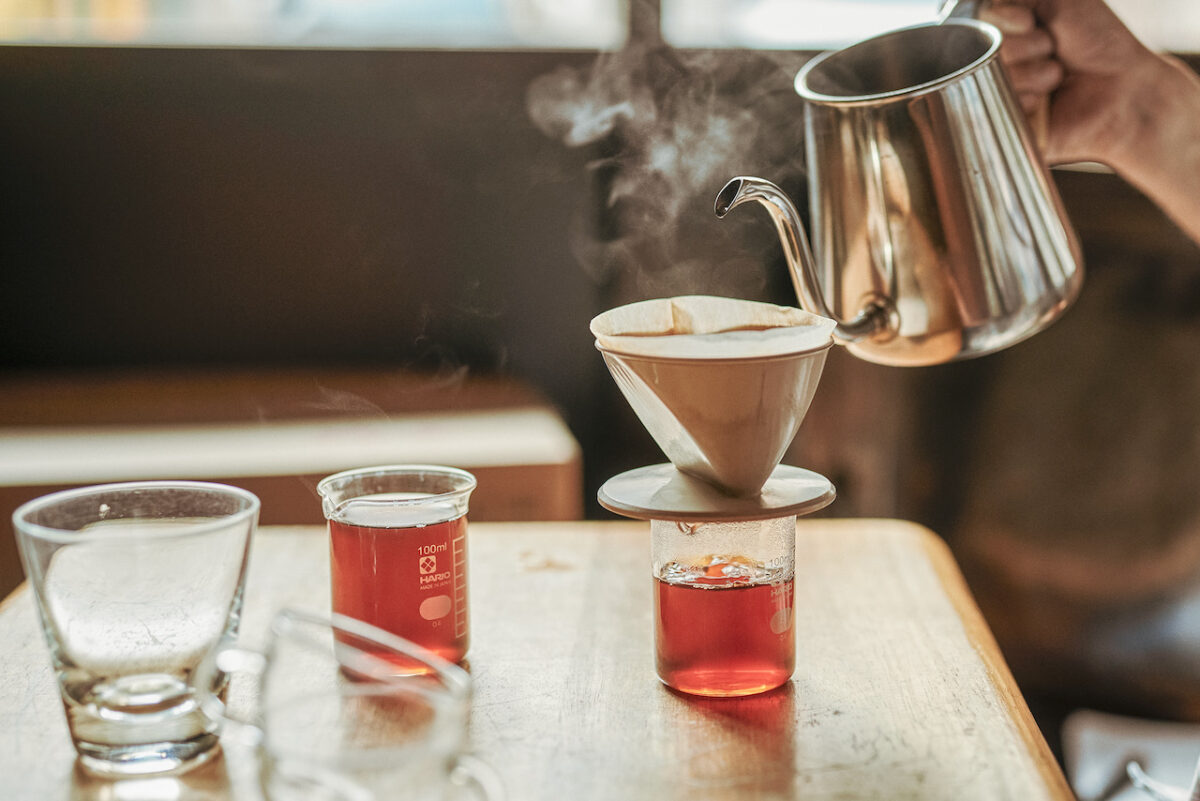
The father and son team does not leave any stone unturned in the process of making delicious coffee. When sampling the coffee, they use a rather crude method of brewing. This is to make sure the coffee would still taste good even when non-professionals brew it.
“Originally, we started this business because we wanted people to be able to drink delicious coffee at home, so we thought it shouldn’t require any special skills to make it. Customers or other roasters sometimes show us new ways of brewing or even roasting coffee. We discover something new all the time. I think that’s the fun part of selling coffee beans.”

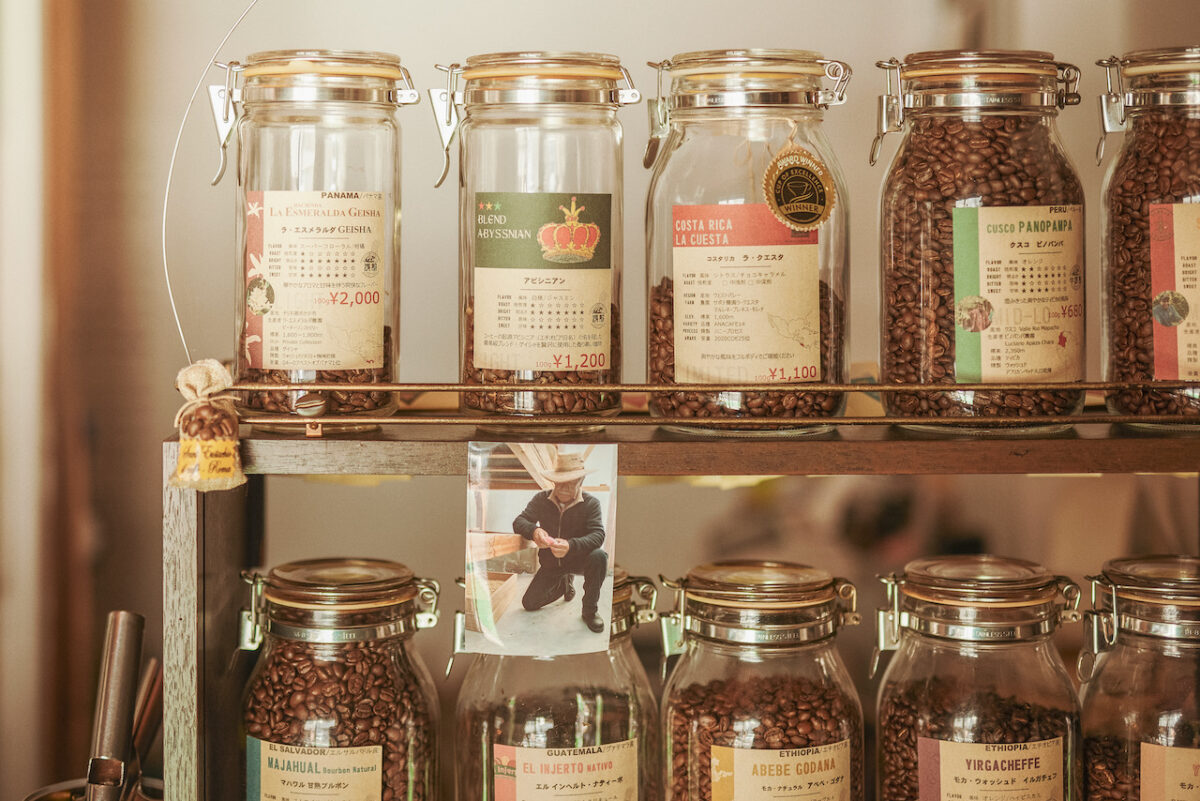
Fascinated by father’s work
Kenkichi dropped out of university in 2002, driven by the desire to work right away and joining Baisenya at the age of 24. But he never thought he would end up working at Baisenya when he entered university.
His father Satoru opened Baisenya in 1988 when Kenkichi was ten years old. At the time, most of the coffee-related shops also served coffee. Baisenya was unique in the market for only selling coffee beans.
Some of his competitors were concerned about whether he could make it, but Satoru never changed his style. Kenkichi recalls, “I only saw the fun part, but my father told me, ‘It was only after six or seven years of opening the business that we could finally start to lead a normal life.’
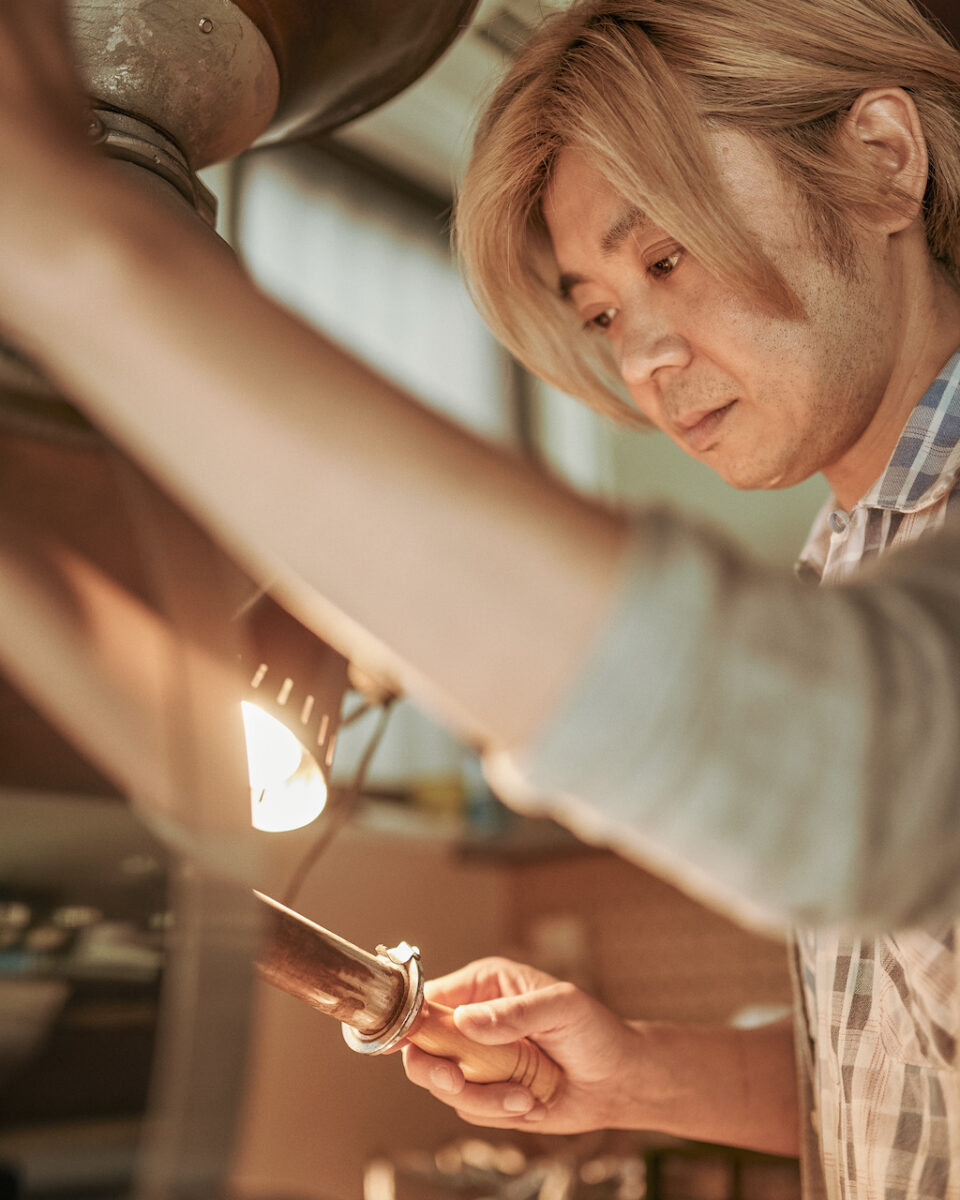
His parents never asked him to take over the business, nor did he feel the obligation to. Nevertheless, Kenkichi naturally became involved with the family coffee business.
He started helping out at Baisenya when he was a high school student. After graduating from high school, he juggled working at an espresso stand and started part-time work again at Baisenya. While making blended coffee and watching the roasting process, he became fascinated by the brewing process, which naturally made him interested in roasting.
Kenkichi states, “One of the reasons I embarked on the path of coffee was because I felt that the industry was going to be more interesting in the future with the proliferation of single-origin coffee. But the bigger reason was my love for roasting coffee. Watching my father doing a noble and respectable job was the deciding factor for me to enter the world of coffee.”
What does Kenkichi mean by “noble and respectable” work?
“There is no falsehood. It’s just honest work. The hardest part of roasting is to continuously produce coffee beans of consistent quality. My father has spent a lot of time and effort every day making minor adjustments in order to stabilize the taste profiles. At the same time, when he couldn’t bring the beans to his standards, he was determined not to sell them. The final product was always delicious, and I wanted to make coffee like that myself.”
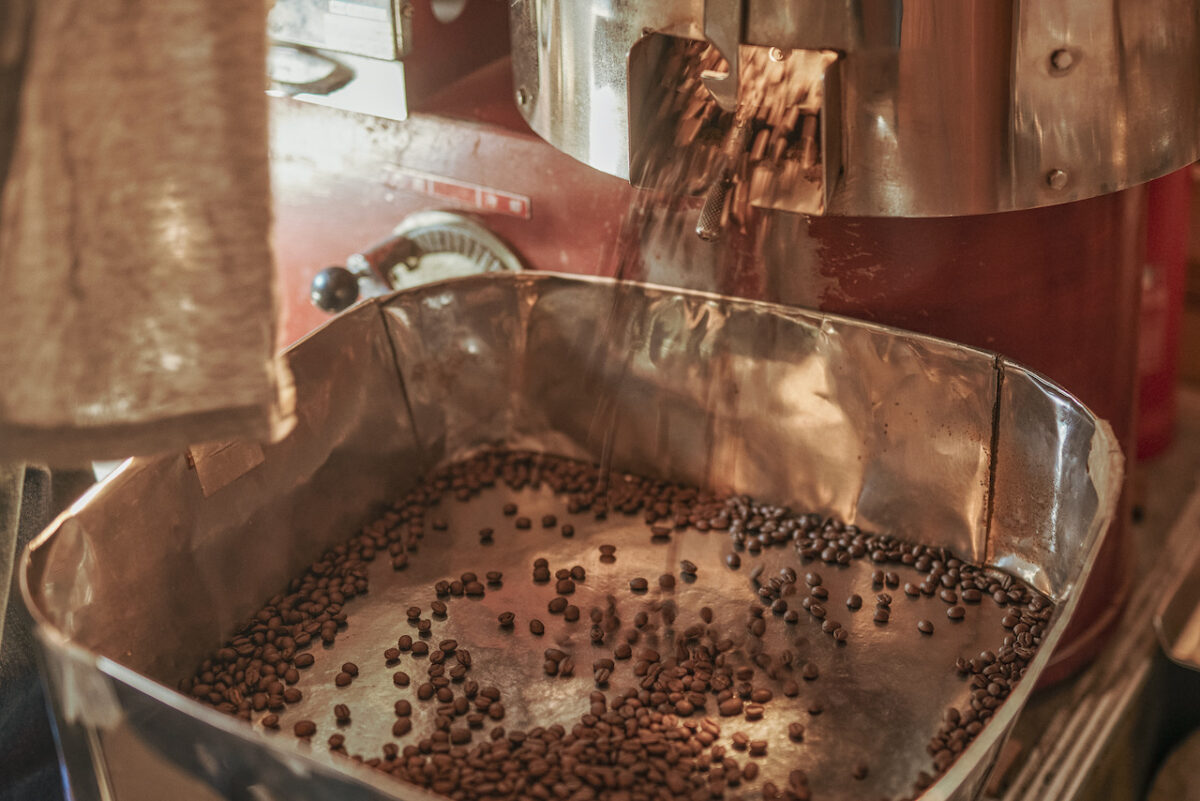
While there are many nationally-known roasters in Fukuoka prefecture, home to a leading coffee city in Japan, there were only a few people of his generation who wanted to work in coffee roasteries in the early 2000s. On the other hand, as more people started to visit the store recently with the aim of learning about coffee, many of them started their own business after having been trained at Baisenya.
“I think it was around 2007 that the momentum for the specialty coffee trend in Fukuoka started to grow. As people of my generation got together and learned from each other in study groups like cupping sessions, a sense of comradery gradually began to grow. I was very much inspired by the positive and energetic people I met here.”

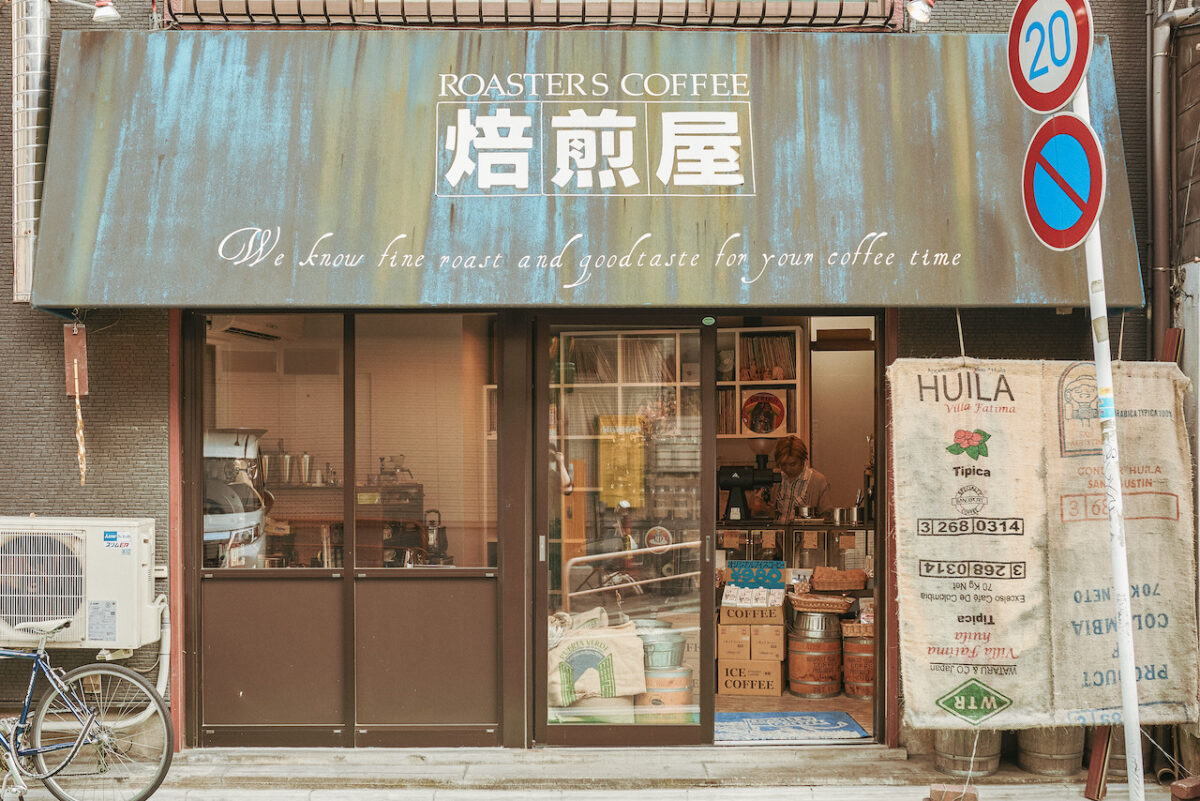
Serving coffee that permeates daily lives.
It has been twenty years since Kenkichi started working at Baisenya. He has kept its tradition without taking his blessed environment for granted. He opened Baisenya’s Hirao branch in 2003 where he has been operating as the owner.
On the other hand, his father, who is about to turn 70, continues to be at the forefront of roasting. The roasting is done by the two of them and the same coffee beans are sold in both stores. Although it would be more efficient to consolidate the stores into one, Kenkichi says, “I renovated the main store for my parents so that they can work in a more relaxed and comfortable environment.”
Kenkichi states, “I see children who used to ride in strollers come to the shop to pick up coffee beans for their parents when they become elementary and junior high school students, or come to buy coffee for themselves when they become adults. I can feel the passage of time by witnessing the phases of life of our customers and the process of them growing up. That is also an interesting part of my work that I enjoy.”
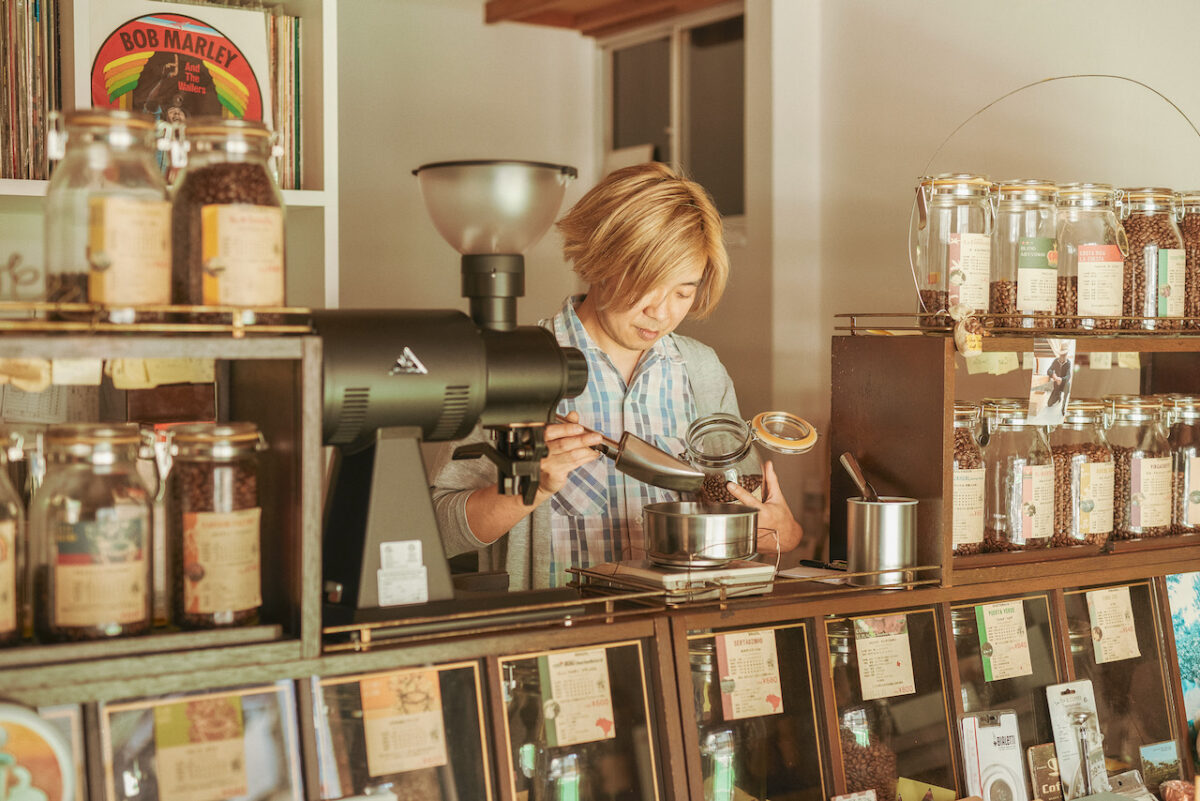
Among the regular customers, some customers have been coming to the shop for three years without fail to buy freshly roasted beans. Some customers say that they can’t get any work done unless they drink several cups of coffee a day made with Baisenya’s beans.
“We even feel the obligation to our regular customers, to keep the shop open for them not to miss the routines we have become a part of. A customer who has been buying the same blend for thirty years immediately noticed the change in taste after we had adjusted it. He told us, ‘The former one was better.’ I am more than happy that our coffee at Baisenya has permeated into a part of our customers’ daily lives.”

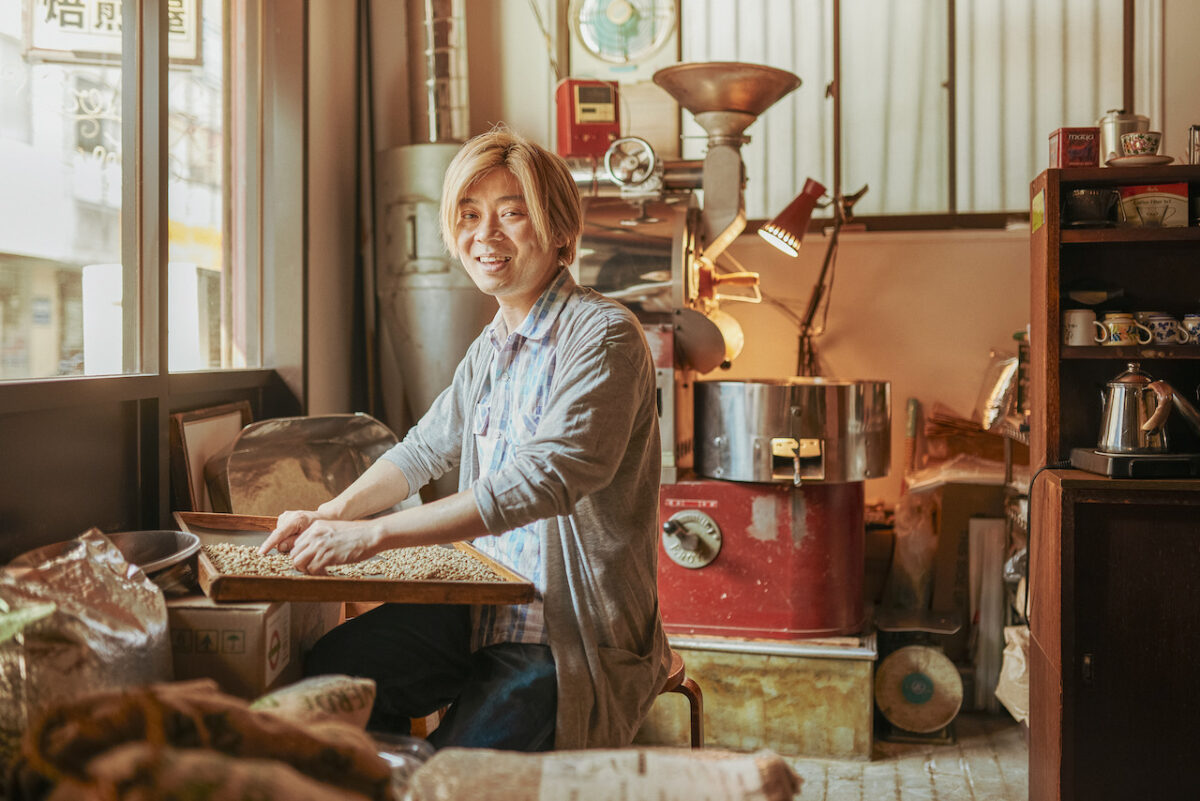
Specializing in selling coffee beans is right for us.
Eventually, they would like to establish a shop with a clear concept. In addition, they would like to create additional value on top of how it has been operating. Kenkichi is pondering about the future of Baisenya, but there is one thing that is clear to him.
“We still won’t be doing ready-made drinks at the shop, meaning we don’t serve coffee we brewed inside the store. There was a time when we thought we would eventually open a cafe, but if we start taking the time and effort we put into roasting into brewing, our energy and attention would be divided. We have been a bit clumsy, and we find enjoyment in selling coffee beans only. We concluded that if we could make a living on it, that would be enough.”
There is another reason for Baisenya to specialize in retailing coffee beans only.
“When we serve coffee at the shop, it would be like we are suggesting there’s a ‘right way’ to brew coffee. Our philosophy is that we want each person to make the coffee any way they like. That’s why I’m most excited to drink coffee that is made by someone else.”
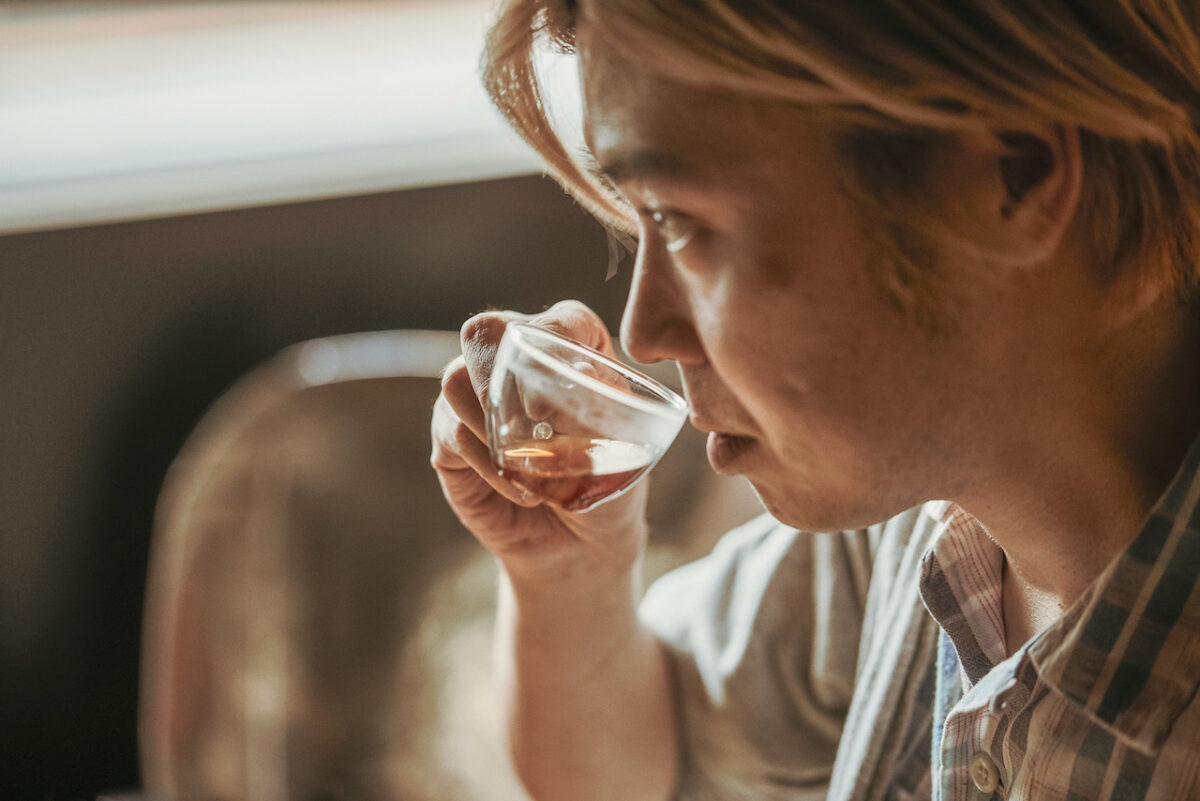
It is also Baisenya’s style not to talk too much to the customers who are visiting the store.
“I’ve always wanted customers to approach my coffee in a ‘neutral’ state, with an open mind. When they select a coffee without any influence, the coffee can express itself more through their palate. I want to make that kind of coffee.”
It’s been thirty-three years for Baisenya to be run by two generations. The trust in the Baisenya’s taste that has been established over the years is probably the most important asset of all. Just as Kenkichi was lured into the world of coffee without his father Satoru’s encouragement, customers are drawn to Baisenya by something that Kenkichi doesn’t talk much about. The coffee at Baisenya must exert a magnetic force on its customers.
Originally written in Japanese by Tatsuya Nakamichi.
MY FAVORITE COFFEE
“My favorite coffee is the coffee brewed by my wife every morning who works with me at the store. I like having a cup of lightly roasted coffee that I can easily drink up while thinking about the day ahead.”
